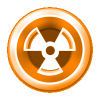Spawn: Difference between revisions
Hendricks266 (talk | contribs) merge the spawn family |
Hendricks266 (talk | contribs) mNo edit summary |
||
| Line 12: | Line 12: | ||
The spawn commands add [[actor]] <[[tile number]]> to the current map, at the position of the [[actor]] that spawned it. | The spawn commands add [[actor]] <[[tile number]]> to the current map, at the position of the [[actor]] that spawned it. | ||
Commands with an "e" prefix set the [[gamevar]] [[RETURN]] to spawned [[actor]]'s [[sprite id]]. | Commands with an "e" prefix set the [[gamevar]] [[RETURN]] to the spawned [[actor]]'s [[sprite id]]. | ||
Commands with a "q" prefix insert the spawned sprite into the [[decal deletion queue]], like the command [[insertspriteq]]. | Commands with a "q" prefix insert the spawned sprite into the [[decal deletion queue]], like the command [[insertspriteq]]. | ||
Revision as of 18:13, 24 February 2011
spawn <tile number>
espawn <tile number>
espawnvar <tile number>
qspawn <tile number>
qspawnvar <tile number>
eqspawn <tile number>
eqspawnvar <tile number>
When not used in the specific command sense, spawning is the act of placing a new sprite into the running game.
The spawn commands add actor <tile number> to the current map, at the position of the actor that spawned it.
Commands with an "e" prefix set the gamevar RETURN to the spawned actor's sprite id.
Commands with a "q" prefix insert the spawned sprite into the decal deletion queue, like the command insertspriteq.
Commands with a "var" suffix take gamevars rather than constants or defined labels for their inputs.
